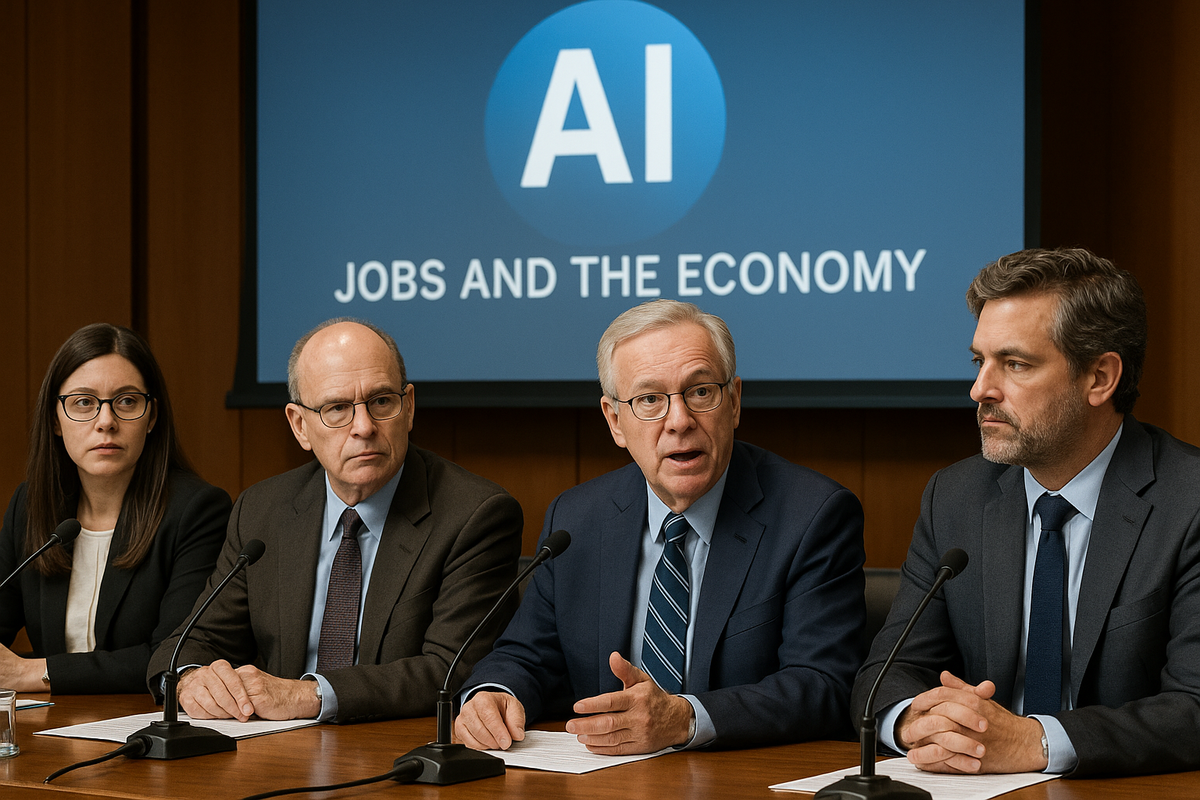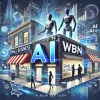
✍️ By Debbie Balfour | WBN News | October 10, 2025 | Click HERE for your FREE Subscription to WBN News and/or to be a Contributor.
As headlines scream about an “AI job apocalypse,” a growing chorus of economists and policymakers is urging calm. Despite predictions of mass unemployment and economic chaos, new data suggest that artificial intelligence, while transformative, has not yet triggered the massive job losses many feared.
According to a recent Brookings Institution analysis, there’s little evidence that AI has caused significant disruption in the labor market so far. While automation is certainly reshaping roles and workflows, the overall employment rate remains strong, and job creation continues in sectors that complement AI rather than compete with it.
“AI is changing how we work more than if we work,” explains economist Dr. Leah Freeman. “Yes, certain repetitive or low-skill roles are being automated, but at the same time, new opportunities are emerging in data analytics, AI integration, and human-AI collaboration.”
The Federal Reserve’s own experts echo that sentiment. Minneapolis Fed President Neel Kashkari recently stated he’s skeptical that AI is already replacing workers in a significant way. “What we’re seeing isn’t job destruction, it’s job transformation,” Kashkari said, adding that while firms may rely more heavily on technology, they’re also hiring for skills that help leverage AI effectively.
Still, the sense of unease persists. Part of the anxiety stems from how quickly AI tools, like ChatGPT, Midjourney, and enterprise automation platforms, have entered mainstream use. Companies are experimenting with them in everything from customer support to finance, and that rapid integration fuels fear that human workers will soon be obsolete.
But the real story may be more nuanced. Experts argue that the economy is still in the early stages of AI adoption, where productivity gains are offset by the costs of integration, training, and restructuring. The result? A slow, steady evolution—rather than a dramatic, dystopian collapse.
The Bigger Picture: Jobs Are Changing, Not Disappearing
Across industries, businesses are redistributing labor instead of eliminating it. In healthcare, AI helps with diagnostics but still requires human judgment. In marketing, automation handles analytics while creative teams focus on strategy and storytelling. And in finance, algorithms analyze risk, but managers still make the final calls.
That hybrid model may define the future of work. Economists predict that as AI matures, companies will favor employees who can adapt, those who combine technical fluency with human insight.
For workers and policymakers alike, the message is clear: while vigilance is essential, panic is premature. The AI revolution may not spell the end of human work, but it will redefine what meaningful work looks like in the 21st century.
Debbie Balfour | Real Estate Investing Success Coach + Podcast Host
📍 Website: www.DebbieBalfour.com
📧 Email: Debbie@DebbieBalfour.com
🔗 LinkedIn: Debbie Balfour
▶️ YouTube Channel: youtube.com/@DebbieBalfour
Join the FREE Facebook Group: Let's Talk Real Estate Investing
TAGS: #AI #Economy #Jobs #Automation #Labour Market #Future Of Work #Technology #WBN AI Edition #WBN News Langley #WBN News Abbotsford #WBN News Okanagan #Debbie Balfour





